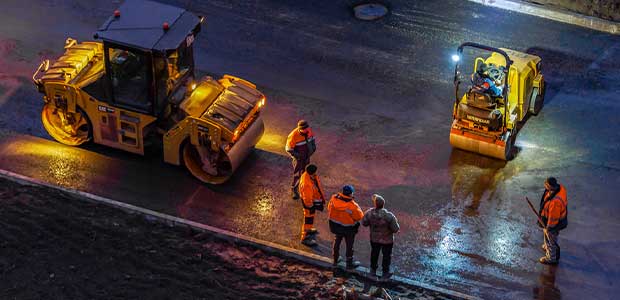
Keeping Workers with Demanding Schedules Safe and Healthy
Working extended or irregular shifts can lead to problems for workers, but there are ways employers can make their jobs safer.
There are many industries where consecutive, irregular or shift work is often required. But these schedules can have consequences on the worker and the workplace.
A 2004 report by U. S. Department of Health and Human Services (HHS), the Center for Disease Control and Prevention (CDC) and the National Institute for Occupational Safety and Health (NIOSH) studied 52 other reports on long schedules and worker health. The researchers found that “in 16 of 22 studies addressing general health effects, overtime was associated with poorer perceived general health, increased injury rates, more illnesses or increased mortality.”
Another study cited by the same report evaluated the injury rates associated with different worker schedules. Overtime schedules were “associated with a 61 percent higher injury hazard;” Shifts 12 hours or longer were “associated with a 37 percent increased hazard rate;” and employees who worked 60 or more hours in one week were “associated with a 23 percent increased hazard rate.”
Demanding schedules, like irregular shifts, can also potentially lead to worker fatigue. Fatigue leads to less concentration and potential health consequences, the HHS, CDC and NIOSH report says. It can also put workers, co-workers and employers at more risk for accidents.
Avoiding irregular schedules is not possible—think about first responders, nurses, truck drivers or some construction workers. People in other industries may also be working longer and more hours during the holiday season. Fortunately, there are ways employers can mitigate the risk of fatigue and injury.
Consider schedules. NIOSH suggests looking at the amount of rest or days off workers get, the predictability of shifts and the overall time of the shift. All of these can affect a worker’s ability to sleep well and construct a life outside of work.
Schedule harder tasks during specific times of the day. Giving workers more difficult or demanding tasks when they’re not active or are exhausted—like, NIOSH says, “in the middle of the night or early morning hours”—can lead to a higher chance of an incident. The best time to schedule demanding tasks? According to NIOSH, during the afternoon or start of the evening, if possible.
Look up. Then look left, right and all around you. From elements like lighting to access to hot food (like a microwave), the conditions of the workplace can affect employees.
Think about healthcare. Many places that offer health or mental health services aren’t open when employees working demanding schedules can go. If employers are able to, consider offering these on-site or giving employees a list of places that are open when they’re off the clock, NIOSH said.
Looking for more resources on making demanding work easier on workers? Read NIOSH’s Plain Language About Shiftwork and NSC’s Fatigue in the Workplace: Causes & Consequences of Employee Fatigue.
Photo credit: Evgenii Panov / Shutterstock.com